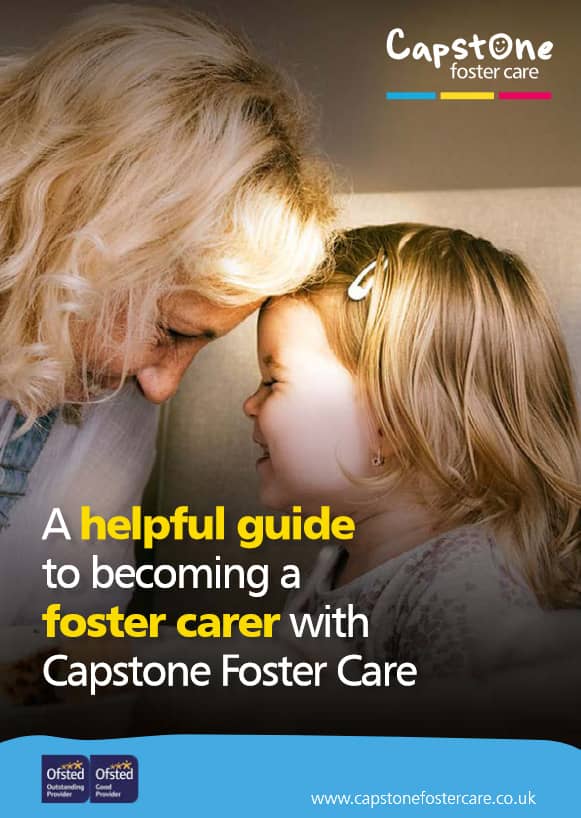


Fostering a disabled child
The role of an independent fostering agency
What support is available for foster carers?
How to choose a foster care agency
Foster Care Fortnight: How to raise awareness about children in foster care
Can I choose who I foster?
How to foster
What are the benefits of fostering with an independent fostering agency?
What happens when a child is taken into care?
Fostering process: what happens on an initial home visit?
Can you foster if you have mental health issues?
Fostering with local authority vs independent agency
Interview: Life as a foster parent during the pandemic
A complete guide to becoming a foster carer
Becoming A Foster Carer
Benefits of becoming a foster parent
What is a Care Leaver?
What is a Foster Carer?
What is Foster Care?
Do I become a Foster Carer?
Fostering Regulations
How much do Foster Parents get paid?
How to Foster a Child
How long does it take to become a Foster Carer?
How to foster – everything you ever wanted to know
Facts about Foster Care
What are the Foster Care requirements?
Foster Care Handbook
Foster Carer Job Description
Changing IFA - Transferring to Capstone
Fostering Definition
Foster Care Statistics
What does Every Child Matters Mean for Foster Parents?
Fostering Stories
Fostering Children UK
Children needing Fostering
Reasons for a child to be taken into Care
Fostering as a Career
Looked after Children
A guide to fostering assessments
LGBTQ+ Fostering
Equality, Inclusion & Anti-discriminatory Practice in Foster Care
What can disqualify you from foster care?
Can you foster if you’re on benefits?
Top transferable job skills to become a foster carer
Fostering as a same sex couple
Fostering while renting
Is there an age limit for fostering in the UK?
Do foster carers get a pension?
How to foster a child: A step by step guide
Can I foster if...?
Mythbusting the top 10 Foster Care Myths
Can I foster if I am disabled?
LGBT Fostering Mythbusting
Can I foster if I have pets?
Can I Foster A Child?
Can I Foster and Work?
Can you Foster with a Criminal Record
Can Single People Foster?
LGBT Family and Foster Care
Fostering across Cultures
Muslim Fostering
Christian Foster Care
Sikh Fostering
Empty Nest Syndrome and Foster Care
Can I Foster?
Fostering Babies and Young Children
Fostering Babies - Myths
Focusing on Parent & Child Fostering
Fostering Siblings
Fostering Teenagers
Fostering Teenagers - Breaking down the Myths
Fostering Unaccompanied and Asylum Seeking Children
Mother and Baby Foster Placements
Private Fostering
Therapeutic Fostering - Multi-disciplinary Assessment Treatment & Therapy Service (MATTS)
Young Children Fostering Placements
Difference between short and long-term fostering
Reunification and Birth Parents: A Guide for Foster Carers
How to prepare a child for becoming a care leaver
Children who foster: impact of fostering on birth children
Fostering LGBTQ+ Youth
How to prepare your home for a foster child
How to help a lonely child: A Guide for Foster Carers
What are the National Minimum Standards for Fostering Services?
10 tips for foster children's education
How to prepare your foster child for secondary school
Tips for coping when foster placements end
Tips for foster parents during Coronavirus
What happens if foster parents get divorced?
5 ways to manage Mother's Day with foster children
Tips for managing foster children's bedtime routines
How to handle foster child bullying
Fostering allowances and the gender pay gap
What discounts can foster carers get?
How to adopt from Foster Care
5 ways to manage Father's Day for children in foster care
8 most common fostering challenges
FosterTalk Membership with Capstone Foster Care
Supporting foster children's contact with birth families
A guide to independent fostering
Keeping Children Safe Online: A Guide For Foster Carers
Foster Care in TV and Film
Play-based learning strategies for foster carers
A Guide to the Staying Put Program
How to deal with empty nest syndrome
How to recognise signs of depression in foster children
Can you take a foster child on holiday?
Tips and advice on fostering with a disability
10 tips on connecting with your Foster Child
Fostering vs Adoption - What's the difference?
How Fostering can change a future
How to adopt from Foster Care
How to encourage children to read in Foster Care
How to prepare a Foster Child's bedroom
Reading and Storytelling with Babies and Young Children
Supporting Children's Learning
The 20 most recommended books Foster Carers and young people should read
Things you can do when your children leave home
The impact of early childhood traumas on adolescence and adulthood
Anxious Disorders in Foster Children
What is sexual abuse and sexual violence
Foster Child behaviour management strategies
Foster Parent Advice: What to expect in your first year of fostering
Capstone's twelve tips at Christmas
10 celebrities who grew up in Foster Care
Celebrating our Children and Young People
Could Millenials be the solution to the Foster Care crisis?
Do you work in Emergency Services?
Form F Assessor and Assessment Training
Foster Care Fortnight
Improving Children's Welfare - Celebrating Universal Children's Day
It's time to talk about Mental Health and Foster Care
New Year - New Career - Become a Foster Carer
Promoting the rights and wellbeing of persons with Disabilities
Refugee Week
Young people and Mental Health in a changing world
Young People Charities
Local authorities and fostering agencies implement the rules and regulations, which govern the assessment, training, and monitoring of foster care.
The concept of fostering a child is universal and the essence of it is that the carer assumes the parental role. The length of the role is often not predetermined. It can be an emergency or short-term arrangement that lasts for a day or a week or it can be a long term or permanent arrangement that lasts until the child or young person reaches eighteen. What begins as a short-term arrangement may become a long-term arrangement. There are different types of fostering such as respite care and remand care. Respite care provides a break for biological parents or foster carers when the child has demanding special needs or behavioural issues or simply when they need a holiday or break. Remand foster care is specific to England and Wales, which allows courts to remand young people to foster care rather than to secure units.
While local authorities have typically been in charge of placements, over the past twenty five years or so, independent fostering agencies have developed as conduits between foster carers and children and young people in care. Local authorities frequently make arrangements with fostering agencies, which tend to have more dedicated resources for assessing and maintaining foster parents. The Office for Standards in Education, Children’s Services and Skills (Ofsted) regulates independent fostering agencies as part of its mandate to achieve excellence in the care of children and young people.
Independent fostering agency providers and managers are required to register with Ofsted. This provides protection and assurance to local authorities when they outsource fostering responsibilities to independent agencies. Because it is not legal for an independent fostering agency to operate without registration with Ofsted, the foster care system is given a guarantee that ensures that the system is properly maintained.
In the UK, you may become a foster parent if you are mature and healthy with a spare bedroom at home. There are no upper age limits. Capstone Foster Care usually expects foster carers to be at least 21 years old. You may be single, married, divorced, cohabiting, or in a same sex relationship.
There are 63,000 children in care in the UK at any given time with another 7,000 children who are waiting for a home. While it is good to talk to family and friends and get their advice on this line of work, Capstone is able to provide precise information on how to become registered and approved as one of our foster families. This is a life changing decision that makes a huge difference in the lives of vulnerable children. After you are accepted and trained, you will always have a social worker to help with any situation that may arise.
If you want to know more about fostering, contact Capstone Foster Care today on 0800 012 4004 or simply click here.
If you’ve got any questions or would like to find out more about fostering with Capstone, fill out the form below.
An experienced fostering advisor from your local area will then be in touch.

Start the conversation today. Our team of friendly advisors are on hand to answer any foster care questions you may have. We can offer you honest and practical advice that can help you decide if becoming a foster carer is the right path for you.


